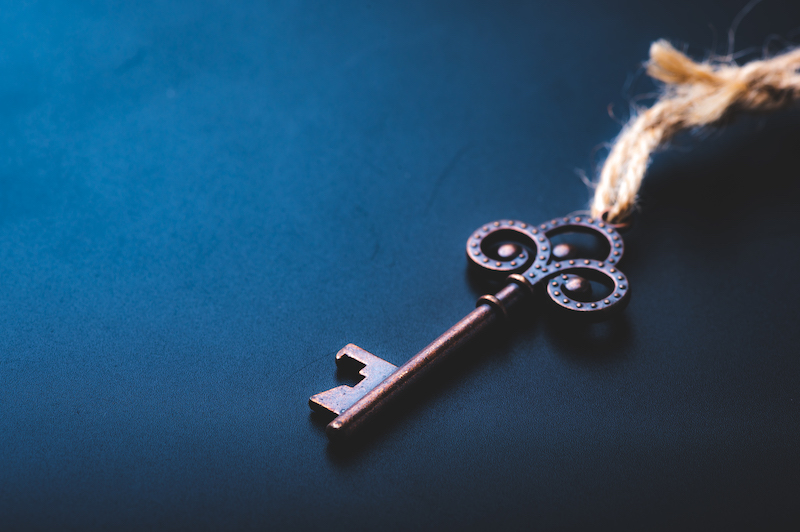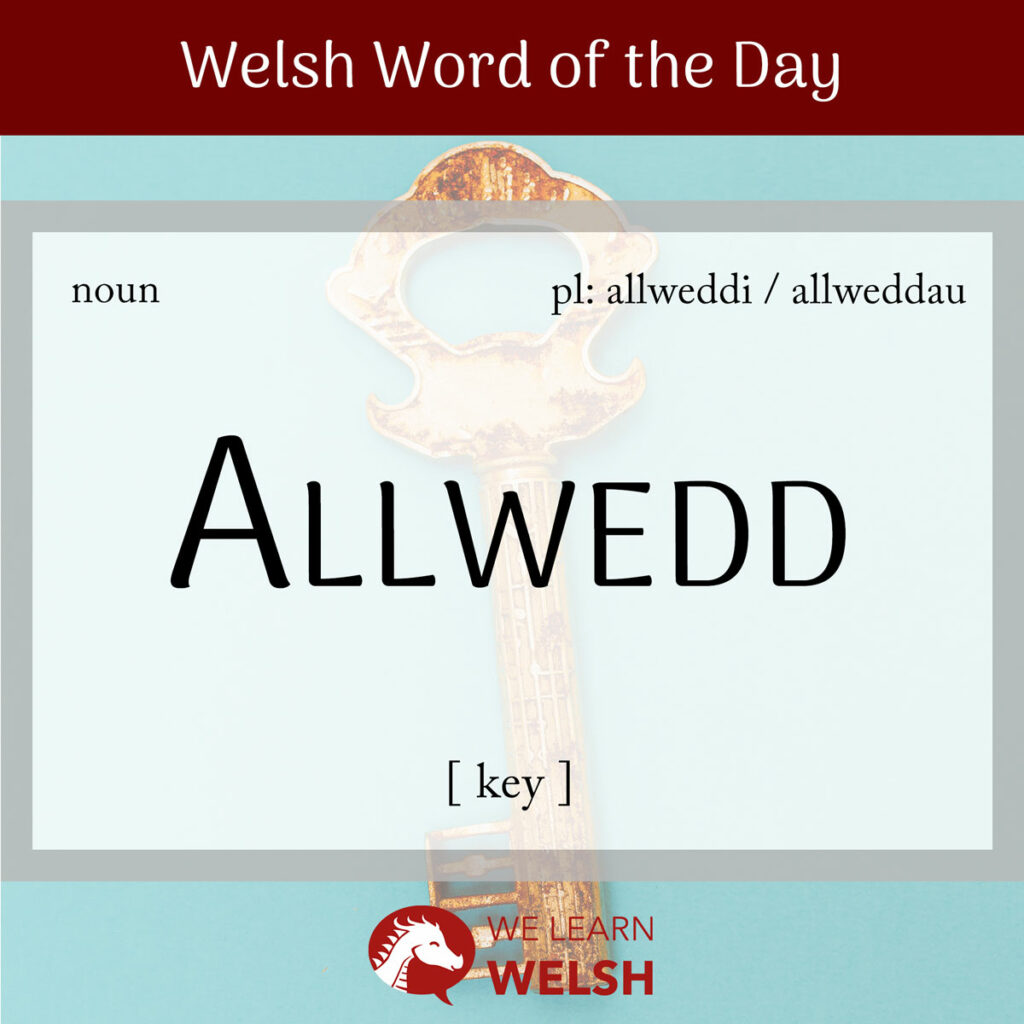Today’s Welsh word of the day is allwedd, meaning key. It’s as useful a word as the object it describes! It’s a feminine noun, and the plural form is allweddi or allweddau, depending on context, region, and personal preference.
allwedd
key
Until I started writing this article, I hadn’t even realised that it’s largely dialectal. Allwedd is actually the primary form used in South Wales, though even within the south, there are variations — with some people pronouncing it allweth instead.
In North Wales, agoriad is more common, and is sometimes shortened to goriad. You may have come across the word agor before if you’ve been learning for a while – this is a verb meaning to open and is the root of agoriad.
The etymology of allwedd isn’t quite as pleasingly simple. It comes from proto-Brittonic *achlwedd, itself all the way from proto-Indo-European *klehw meaning hook or peg. So similar words have appeared in the other Brittonic languages, like the modern Breton alc’hwez.
Neither of these words mutate, but they’re both subject to h-prosthesis, which is adding an h to the front of a word in certain circumstances. The phrases that are affected are ei hallwedd (her key), eu hallwedd (their key), or ein hallwedd (our key), and the equivalents using agoriad.
Diar mi, dw i’n meddwl fy mod i wedi colli ein hallweddi.
Dear me, I think I’ve lost our keys.
As you can see in the example above, this applies to plural forms too.
Some people don’t use h-prosthesis when it’s technically required. This even includes native speakers, which may shock the grammar-conscious learner!
Most people have at least one set of allweddi for the tŷ (house) in which they live. You also probably have allweddi’r car / allweddi car (car keys), some kind of allwedd or cerdyn allwedd (access card) for your workplace, and perhaps different keys for the garej (garage) or the drws cefn (back door). Plus, your cyfrifiadur (computer) will have an allweddell / byseddfwrdd (keyboard) for you to type on!
Pianos (pianos) have allweddellau too, though often the allweddi of a piano are just called nodau (notes). Just to make things more confusing, allwedd applies in some musical contexts but not others – a musical key in terms of the major or minor sort is called a cywair. But then again, if you notice your offeryn (instrument) is in the wrong cywair, it’s an allwedd diwnio (tuning key) that you’ll need.
Key as an adjective has a different translation again, although this time at least it’s in the same word family. The word you’ll need is allweddol, as in gweithwyr allweddol (key workers).
Mae ei phlant dal yn yr ysgol oherwydd mai gweithwraig allweddol ydy hi.
Her children are still in school because she’s a key worker.

With all these allweddi, we’re going to need to talk about cloeon / cloeau (locks), too. Here are ymaddroddion allweddol (key phrases) using either or both, to keep in your vocab notebook under clo ac allwedd (lock and key).
- tan glo / tan glo ac allwedd = under lock and key
- clo clap / clo clec = padlock
- allweddbad = keypad
- datod clo = to pick a lock
- cloi = to lock
- cloi / allweddu = to key, in mechanics
- datgloi = to unlock
- gadael yr allwedd yn y clo = to leave the key in the door
In terms of non-literal meanings, allwedd also features in some Welsh idioms and proverbs.
For example, someone who puts someone irresponsible or malicious in a position of power is rhoi allwedd cwt ffowls i’r cadno (giving the fox the key to the poultry shed). Or the succinct allwedd calon cwrw da tells us that good beer is the heart’s key, suggesting that you can tell someone’s real feelings and beliefs when they are wedi meddwi (drunk).
One I’m unsure about is allwedd tlodi, seguryd (laziness is the key to poverty). On a social level, this attitude definitely ignores the societal factors that contribute to poverty in the real world. But on a personal level, it can be quite good motivation!
Before we bring this article to a close, I’d like to share a beautiful song with you called… you guessed it… Allwedd by the popular Welsh folk band Bwncath. Enjoy!

